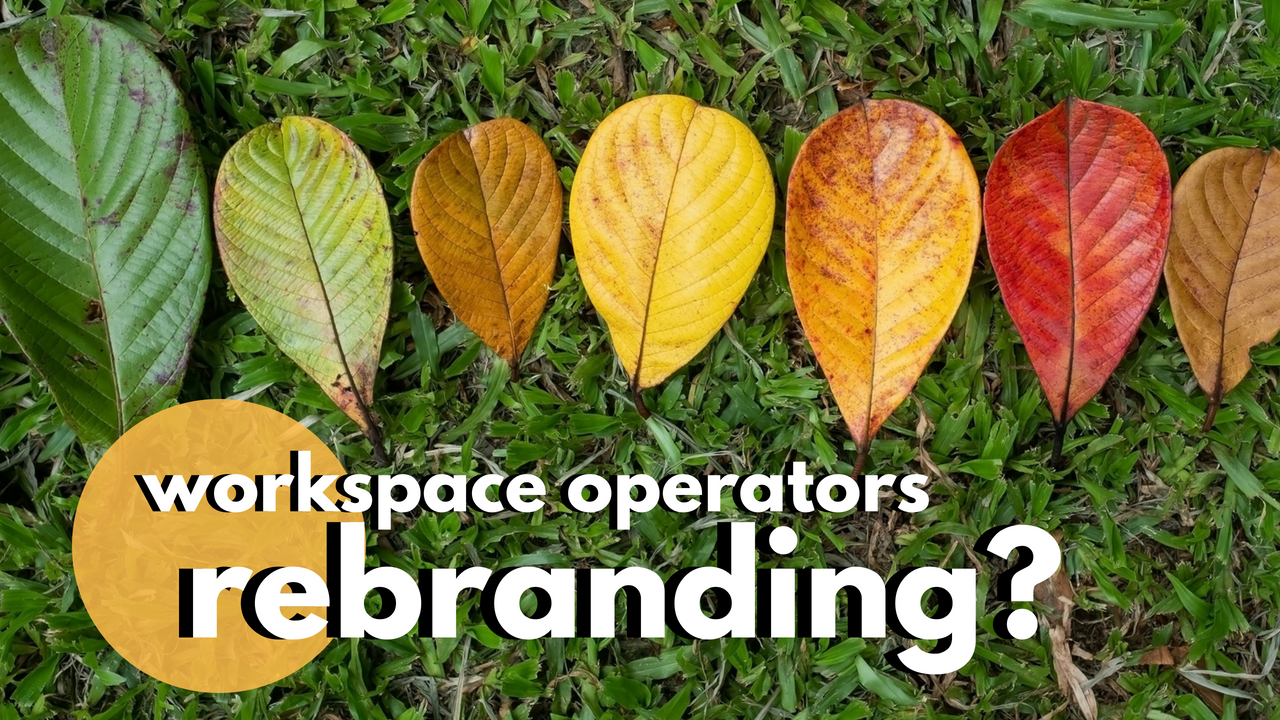- In recent years, we’ve seen the terms serviced office, business center, and executive suite slowly disappear
- Language shifts over time and the terms above shifted to the cooler and hipper term of coworking
- As the industry evolves, operators are rebranding and adopting new names that better reflect their service offering
Earlier this year we posed the question of: 10 years from now will the term coworking still exist? Ten, twenty, and even thirty years ago the terms that people commonly used in the industry were serviced office, business center, and executive suite. These concepts barely get mentioned in industry talk today.
Steve King argued that when coworking came around, it took over the industry. This happened because “coworking is a more marketable concept: it’s hip, hot, cool, and fun.” On a similar note, Alessandro Gandini in a research paper argued that “coworking is being used for branding, marketing, and business purposes.”
Coworking became a desirable concept. But, as King rightly notes, “language often shifts.” Over the last few years, we’ve seen the terms serviced, office, business center, and executive suite slowly disappear. They shifted to coworking. Today, however, it seems that both the former and latter terms are shifting to the broader term of workspace.
As the industry evolves and flexible workspace operators increasingly provide both private offices and coworking space within a given location, many believe neither the term serviced offices nor coworking truly reflects what they have to offer. Which is why several companies have decided to rebrand, creating a new name and image for themselves.
Last year, we saw Coworkrs rebrand to Bond Collective. In an interview with Allwork.Space, CEO of Bond Collective, Shlomo Silber stated that “the coworking industry is shifting towards providing unique and mature spaces. Coworkrs was a great name, but when you call yourself just coworking, you can fall into this very generic definition of ‘coworking’ (open space, young people, ping pong tables).” Coworkrs needed a name that embodied their brand a little better.
This year, the number of flexible workspace operators adopting a new name has grown. Even those providing services to flexible workspace operators have seen the need to rebrand.
In early June of this year, Search Office Space rebranded to Office Freedom. Founder and CEO, Richard Smith, stated that, “The word ‘Freedom’ is uplifting, positive and inspiring; everybody desires it in all aspects of life. It (the new name) better reflects our amazing industry which provides clients with the freedom and flexibility to work where, when and how they want. It’s also indicative of how the industry has changed in recent times to become more creative, versatile and collaborative.”
Also in June of this year, Indonesia-based EV Hive also announced it was rebranding to COCOWORK. The press release stated that the new name, “derived from the words community, collaboration, and workspace, [better] reflects its commitment to its core premise as a coworking space. We believe that this new face and identity will empower us to reach a wider audience. Our company has its roots in the startup industry, but we believe that the coworking concept is relevant and beneficial to many other types of businesses in Indonesia.”
This month, August, Meridian Business Centers, which has been around for over 20 years, announced it was rebranding its Houston locations to WORKSUITES. Although part of the reason behind the name was due to a change in ownership structure, it was also a strategic move to better reflect the dynamic climate of office space and to reach a wider audience.
Office Suite Strategies, a consulting firm that has specialized on the flexible workspace industry for 20+ years, has rebranded to Workspace Strategies, to better reflect today’s trends and stay up to date with industry terminology.
Last but not least, Level Office recently announced it has rebranded to Novel Coworking, “a name that more accurately represents the company’s goal of partnering with clients to provide the space and resources they need to innovate and write their story.”
There are likely many more cases of operators adopting a new name to better reflect the times. The takeaway here is that the industry’s language is shifting and operators are increasingly trying to create a brand that is more reflective and descriptive of the industry and their service offering.
















